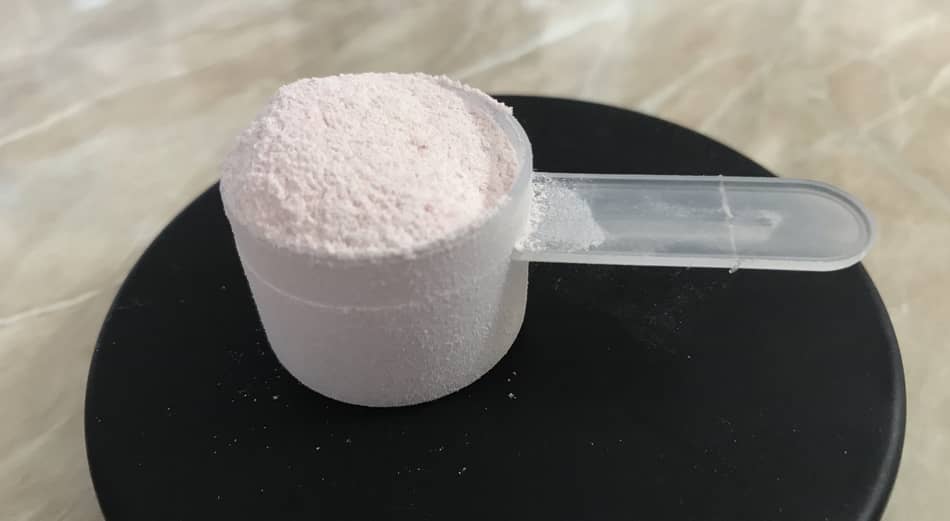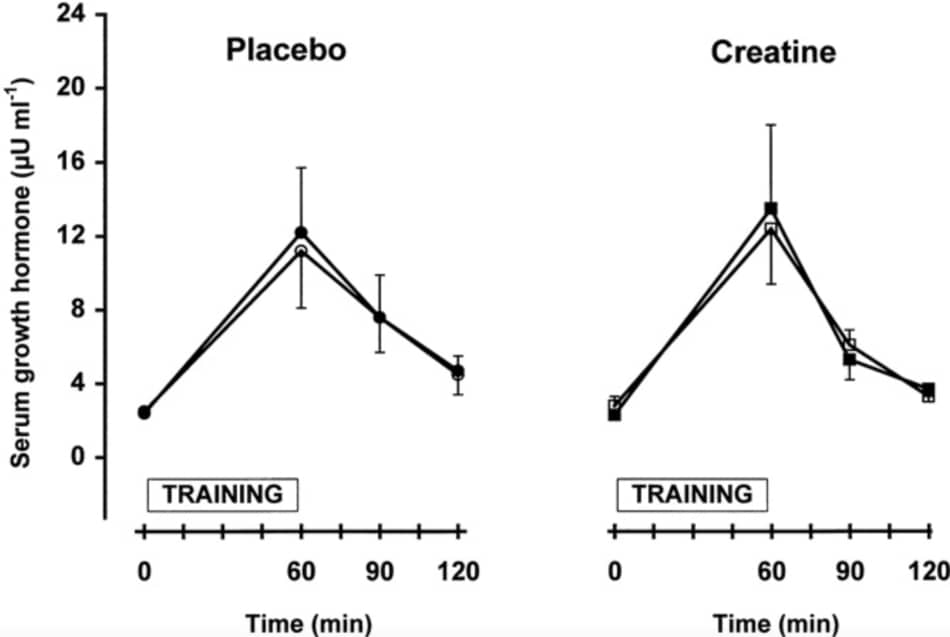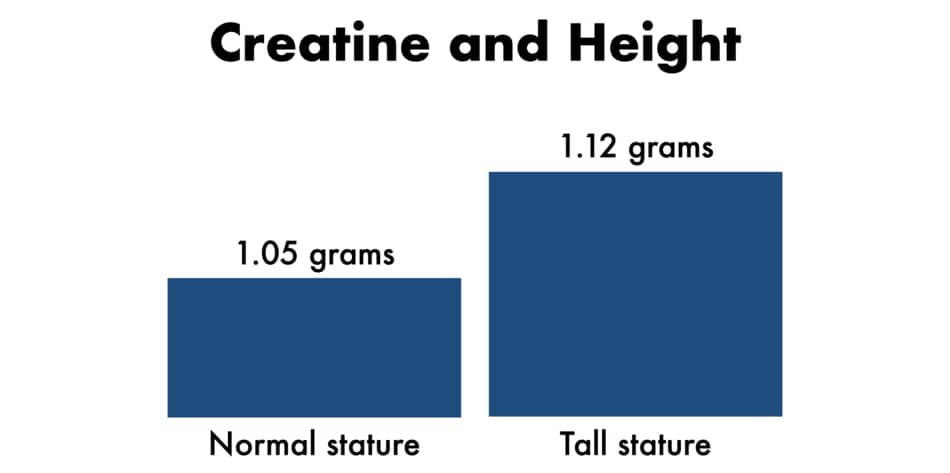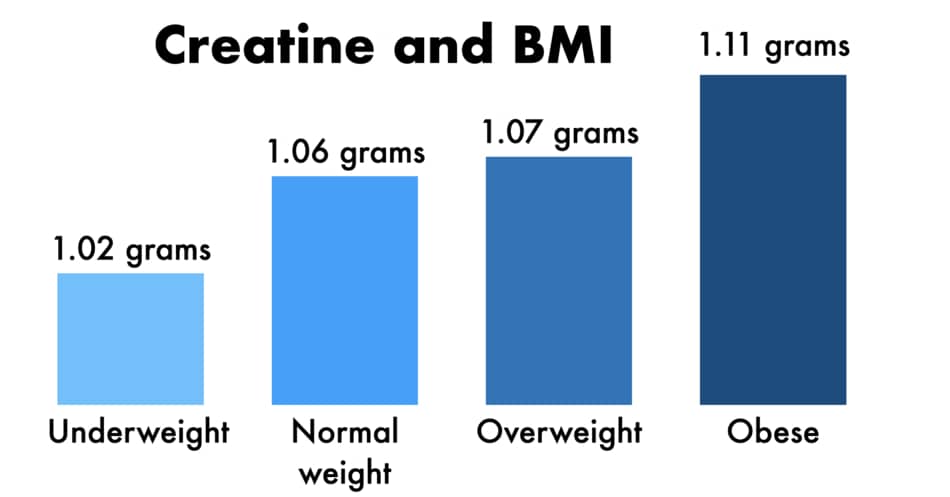Creatine is one of the more studied dietary supplements, with over 500 research studies evaluating the effects of creatine on exercise capacity and muscle physiology in trained and untrained people. However, not much information is about creatine and growth.
Today I will explain if creatine does make you taller, and if so, how does this process works?
As a whole, dietary creatine does make you taller because it helps to increase the levels of growth hormone, which is responsible for human growth. Creatine also helps to inhibit myostatin, which is been shown to negatively affect cell proliferation and human stature.

NOTE: Please remember that this is relevant to kids and adolescents, not to adults.
Does Creatine Affect Growth?
In general, dietary creatine, as well as carnosine, anserine, and 4-hydroxyproline do affect human growth because they all play a role in cell proliferation and cell enlargement.
Here’s how it works.
- Cell proliferation is the process of multiplying the number of cells. It is a balance between cell formation (growth) and cell death (differentiation). Cell proliferation is an essential part of human growth.
- Creatine does not have a direct impact on cell proliferation. However, it does have an impact on myostatin, which is shown to inhibit cell proliferation.
How does creatine affect human growth?
In general, creatine does affect growth because creatine supplementation leads to decreases in serum myostatin levels. Myostatin inhibits both myoblast cell proliferation and differentiation, as well as lowers muscle mass. This means that blocking myostatin activity can have applications for promoting growth.
Of course, please keep in mind that this only applies to children and adolescents (I’m not talking here about adults).
The growth rate decreases with age and ceases by late adolescence, whether you take creatine or not.
Here’s why.
- According to Nature Reviews, growth is rapid in early life and gradually decelerates with age until it eventually ceases when the organism achieves its final size.
This means that creatine can increase height but only for underage. For the people who are above adolescent age, that’s it.
- Human growth is mostly influenced by genetics. In fact, it is estimated that 70–90% of adult stature is determined genetically (Hao et al. 2013).
However, human growth is also influenced by nutrition, as well as environmental, and hormonal factors.
When it comes to food intake, most of the studies have documented the effects of malnutrition and its permanent impact on final adult height.
For example, a study by Dr. Suparna Jain has shown that chronic malnutrition can lead to growth hormone resistance, as well as increased cortisol levels, which are both linked with impaired growth.
What is growth hormone resistance? In short, growth hormone resistance (also called growth hormone insensitivity or deficiency) is a state of the ineffectiveness of growth hormone. It is a rare genetic disorder in which the body is unable to use the growth hormone that it produces.
The most typical form of growth hormone resistance is Laron-type dwarfism.
Does Creatine Play A Role In Human Growth?
As a whole, dietary creatine does play a role in human growth because creatine enhances growth hormone secretion. A single dose of 20 grams of creatine showed significant acute stimulation of the growth hormone for up to 6 hours.
However, other studies on creatine and growth hormone showed different results.
Katholieke Universiteit Leuven in Belgium published a study where they documented that short-term creatine supplementation does not alter the hormonal response.
See the graph below.

The figure on the left shows the control group (people who did not ingest creatine), whereas the graph on the right shows the results of the creatine group (people who ingested 20 grams of creatine for 5 days a week) (Schedel, J M et al. 2000).
As you can see, the results are similar.
How Does Creatine Affect Growth?
Creatine is also an amino acid, created from arginine, glycine, and methionine. It is synthesized endogenously in the human body via the cooperation of the liver, pancreas, and kidneys. This means the body can manufacture about 1.7 grams of creatine per day.
Studies have shown that specific amino acids, such as arginine, lysine, and ornithine can stimulate growth hormone (GH), which is responsible for governing our height, bone length, and muscle growth (Chromiak, 2002).
Creatine is also acquired through diet, especially through seafood and red meat, as well as synthetically made creatine supplements.
And that is where things get interesting.
One of the food sources that are rich in creatine is beef. For example, 30 g of dried beef provides:
- 303 mg of creatine (18% RDA)
- 80.4 mg of taurine (107% RDA)
- 608 mg of carnosine (100% RDA)
Can creatine stunt height growth? Overall, creatine does not stunt your height growth. It’s the opposite. Studies have shown that eating 60 grams of beef (which is around 600 mg of creatine) for 21 months was enough to prevent nutritional growth stunting in 6 to 14-year-old children.
Does Creatine Make You Taller?
Over 300 studies evaluated the effects of creatine on resistance training alone, with 70% showing statistically significant positive results. However, there is only a handful of studies to date that evaluated the correlation between daily intake of creatine from regular diet and growth indicators.
For me, this is an important subject because I would like to know how creatine (and meat consumption in general) affect the growth of my kids and their development.
For example, women during pregnancy have lower levels of serum creatine.
Studies have shown that “fetal growth is positively associated with creatine levels, with each unit increase in maternal creatine goes with a 1.23 unit increase in birthweight centile and a 0.11-cm increase in birth length” (Dickinson, et al. 2016).
This can have a positive impact on both child’s weight and height.
Does creatine make you taller? Overall, dietary creatine that is consumed through a regular diet can make you taller, as long as you’re under the age of 19. Studies have shown that children and adolescents with a higher intake of creatine have a higher stature compared to lower intake peers.
Now watch this.
Dr. Darinka Korovljev from the University of Novi Sad in Serbia did a cross-sectional study on 4291 people who provided valid dietary information on their daily creatine intake (the creatine intake was estimated by the amount of meat consumed per day).
Take a look at the graph below.

As you can see, kids who consumed more creatine (on average 1.12 grams per day) were taller than their peers. Plus, the results have shown that “each additional 0.1 g of creatine consumed per day increases height by 0.60 cm” (Korovljev et al. 2021).
Does it mean you should give up your kale shake and switch to grass-fed beef? Not so fast.
Consuming more creatine was not only linked with increased height but also with increased body weight and BMI.
In the graph below you can see the correlation between daily creatine consumption and body weight in children and adolescents.

As you can see, consuming more creatine (especially over 1.11 grams per day) was also associated with higher BMI and body weight.
Learn more: Click here to learn more about “how to make creatine taste better“.
Conclusion
In short, creatine can boost height, especially in early life because it inhibits myostatin and helps to stimulate growth hormone. Children who consume above 1 gram of creatine per day are shown to be taller than their peers. However, the source of dietary creatine is been mainly food, not synthetic supplements.
For the record, even if creatine is one of the most studied dietary supplements and is well-tolerated by the majority of people, I still wouldn’t give it to my children. Use ground-fed beef instead.
